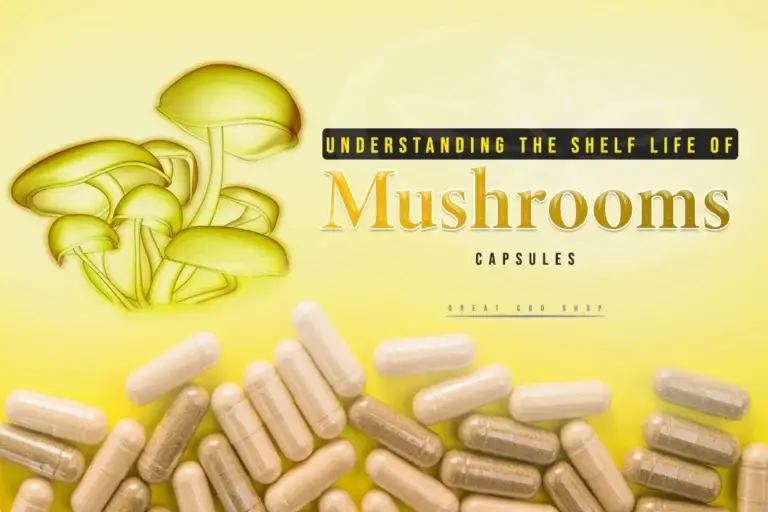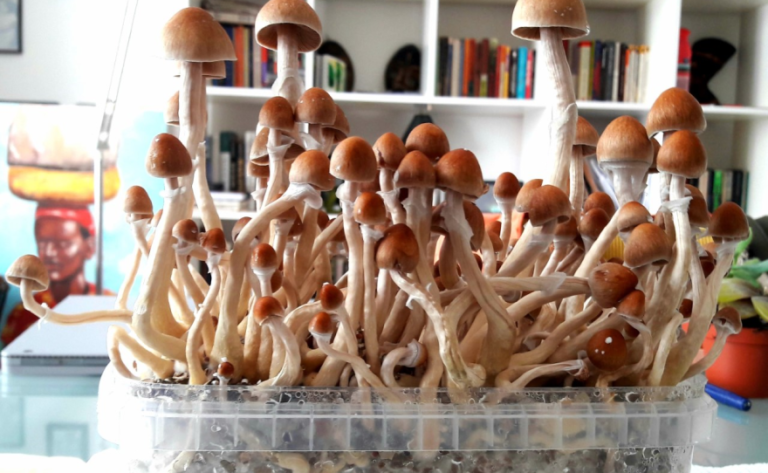Psilocybin Therapy UK – The Magic Mushroom Therapy
Unlocking the Healing Potential: Exploring the Power of Psilocybin Therapy UK

Introduction to Psilocybin Therapy UK
As an experienced writer, I’m eager to explore psilocybin therapy in the UK and its healing potential. Psilocybin, the active compound found in certain mushrooms, has recently attracted significant scientific and medical interest. Numerous studies indicate that psilocybin therapy could provide new treatments for mental health conditions such as depression, anxiety, addiction, and end-of-life distress.
In this article, we will investigate the healing potential of psilocybin therapy, its applications, and the current landscape in the UK and beyond. We will also highlight the unique experiences that psilocybin therapy retreats offer and help you find reputable therapy services in your area.
Understanding the Healing Potential of Psilocybin Therapy
Psilocybin, the primary psychoactive compound found in certain species of mushrooms, has been used for centuries in various cultural and spiritual practices around the world. In recent years, however, the scientific community has taken a renewed interest in the therapeutic potential of this remarkable substance.
Emerging research has suggested that psilocybin therapy can be an effective treatment for a range of mental health conditions, including:
- Depression: Several studies have demonstrated the potential of psilocybin therapy to alleviate the symptoms of depression, with some participants experiencing long-lasting improvements in their mood and overall well-being.
- Anxiety Disorders: Psilocybin therapy has shown promise in the treatment of anxiety disorders, particularly in individuals facing end-of-life distress or grappling with the challenges of a terminal illness.
- Addiction: Psilocybin therapy has been explored as a potential treatment for various addictions, including alcohol and nicotine dependence, with some participants reporting reduced cravings and improved long-term abstinence.
- Post-Traumatic Stress Disorder (PTSD): Preliminary research suggests that psilocybin therapy may be effective in reducing the symptoms of PTSD, potentially by facilitating the processing and integration of traumatic experiences.
The underlying mechanism behind the therapeutic effects of psilocybin is not yet fully understood, but it is believed to involve the compound’s ability to modulate brain activity, enhance neuroplasticity, and facilitate the integration of new perspectives and insights. The transformative experiences often reported by psilocybin therapy participants may also play a crucial role in the healing process.
What is Mushroom Therapy Used For?
Mushroom therapy, or psilocybin therapy, has been explored for a variety of therapeutic applications, with the primary focus on mental health and well-being. Some of the key areas where mushroom therapy has shown promise include:
- Treatment-Resistant Depression: Psilocybin therapy has been investigated as a potential treatment for individuals with depression that has not responded well to conventional antidepressant medications.
- Anxiety and End-of-Life Distress: Psilocybin therapy has been used to help alleviate anxiety and distress experienced by individuals facing terminal illness or the end of life.
- Addiction and Substance Abuse: Psilocybin therapy has been explored as a means of addressing various addictions, including alcohol and nicotine dependence, by potentially reducing cravings and promoting long-term abstinence.
- Post-Traumatic Stress Disorder (PTSD): Preliminary research suggests that psilocybin therapy may be effective in reducing the symptoms of PTSD, potentially by facilitating the processing and integration of traumatic experiences.
- Obsessive-Compulsive Disorder (OCD): Some studies have indicated that psilocybin therapy may have the potential to alleviate the symptoms of OCD, a condition characterized by intrusive thoughts and compulsive behaviors.
- Cluster Headaches: Psilocybin and other psychedelics have been investigated as potential treatments for cluster headaches, a rare and debilitating type of headache.
It’s important to note that while the therapeutic potential of psilocybin is promising, the research is still ongoing, and the use of psilocybin-based therapies is currently limited in most countries, including the United Kingdom. Individuals interested in exploring psilocybin therapy should consult with licensed healthcare professionals to understand the risks, benefits, and legal implications in their specific location.
Exploring the Benefits of Psychedelic Therapy
The exploration of psychedelic substances, such as psilocybin, in therapeutic settings has gained increasing attention in recent years. Psychedelic therapy, also known as psychedelic-assisted therapy, involves the use of these substances under the guidance of trained professionals to facilitate profound personal insights, emotional processing, and lasting positive changes.
Some of the key benefits associated with psychedelic therapy include:
- Enhanced Neuroplasticity: Psychedelic substances like psilocybin have been shown to increase neuroplasticity, the brain’s ability to adapt and form new neural connections. This can facilitate the integration of new perspectives and the dissolution of rigid thought patterns.
- Reduced Symptom Severity: Numerous studies have demonstrated the potential of psychedelic therapy to alleviate the symptoms of various mental health conditions, including depression, anxiety, addiction, and PTSD.
- Improved Well-Being and Life Satisfaction: Participants in psychedelic therapy often report experiencing a greater sense of overall well-being, increased life satisfaction, and a renewed sense of purpose and meaning.
- Spiritual and Mystical Experiences: Psychedelic therapy can facilitate profound spiritual and mystical experiences, which may contribute to the therapeutic benefits by providing a sense of interconnectedness, awe, and personal growth.
- Long-Lasting Positive Changes: The transformative effects of psychedelic therapy have been observed to persist for months or even years after the initial treatment, suggesting the potential for lasting positive changes in the lives of participants.
It’s important to note that the use of psychedelic substances, including psilocybin, is tightly regulated in most countries, and the legality and availability of psychedelic therapy can vary significantly. Individuals interested in exploring psychedelic therapy should carefully research the legal and ethical considerations in their specific location.
Psilocybin Therapy in the UK: Current Landscape and Regulations
In the United Kingdom, psilocybin therapy is advancing, with ongoing research exploring its potential therapeutic applications. However, the legal status of psilocybin-containing mushrooms and their therapeutic use remains complex and controversial.
Currently, psilocybin and psilocin, the active compounds in “magic mushrooms,” classify as Class A controlled substances under the Misuse of Drugs Act 1971. This classification prohibits the possession, cultivation, and supply of psilocybin-containing mushrooms in the UK, except for certain licensed research and medical purposes.
Despite these legal restrictions, efforts continue to explore the therapeutic potential of psilocybin in the UK. Some key developments include:
- Research Trials: Several research institutions, such as Imperial College London and the University of Cambridge, have been granted licenses to conduct clinical trials investigating the use of psilocybin for the treatment of conditions like depression, anxiety, and addiction.
- Regulatory Discussions: The UK government and regulatory bodies, such as the Medicines and Healthcare products Regulatory Agency (MHRA), are actively engaged in discussions about the potential rescheduling or reclassification of psilocybin to facilitate its therapeutic use under medical supervision.
- Private Clinics and Retreats: While the legal landscape remains complex, a small number of private clinics and retreat centers in the UK have begun to offer psilocybin-assisted therapy services, often in collaboration with licensed medical professionals and researchers.
It’s important to note that the legality and availability of psilocybin therapy in the UK can vary depending on the specific location and the regulatory framework in place. Individuals interested in exploring psilocybin therapy should carefully research the current legal status and the availability of licensed and reputable service providers in their area.
Psilocybin Therapy in Different Cities: London, Manchester, Bristol, Edinburgh, and Amsterdam
As the landscape of psilocybin therapy continues to evolve, different cities in the UK and Europe are exploring the potential of this therapeutic approach in unique ways.
- London: The capital city of the UK has been at the forefront of psilocybin research, with several leading institutions, such as Imperial College London, conducting clinical trials and exploring the therapeutic applications of psilocybin. While the legal status of psilocybin-containing mushrooms remains a challenge, some private clinics in London are working to offer psilocybin-assisted therapy services.
- Manchester: The city of Manchester has also seen some activity in the psilocybin therapy space, with the University of Manchester being involved in research projects investigating the use of psilocybin for the treatment of depression and addiction. However, the availability of psilocybin therapy services in Manchester is currently limited.
- Bristol: The city of Bristol, known for its vibrant arts and cultural scene, has emerged as a hub for psilocybin research and therapy. The University of Bristol has been actively involved in studying the potential of psilocybin for the treatment of various mental health conditions, and there are indications that private psilocybin therapy providers may be operating in the area.
- Edinburgh: The Scottish capital of Edinburgh has also witnessed some developments in the psilocybin therapy landscape. The University of Edinburgh has been engaged in research projects exploring the therapeutic potential of psilocybin, and there are ongoing discussions about the potential regulation and reclassification of psilocybin-containing substances in Scotland.
It’s important to note that the availability and legality of psilocybin therapy services can vary significantly between these cities and within the UK as a whole. Individuals interested in exploring psilocybin therapy should thoroughly research the current regulations and the reputation of any service providers in their local area.
Psilocybin Therapy Retreats: A Unique Healing Experience
Alongside clinical and research-based approaches to psilocybin therapy, an increasing number of psilocybin therapy retreats have emerged, providing unique and immersive healing experiences for individuals seeking personal growth, transformation, and solutions to mental health challenges.
These retreats create a holistic and supportive environment where participants engage in guided psilocybin sessions, integration workshops, and various complementary therapies, including meditation, breathwork, and somatic practices.
The key benefits of psilocybin therapy retreats include:
- Personalized Approach: Psilocybin therapy retreats often provide a more personalized and tailored experience, with smaller group sizes and a focus on the individual’s unique needs and goals.
- Integrative Practices: In addition to the psilocybin sessions, these retreats typically incorporate various integrative practices, such as counseling, journaling, and group discussions, to help participants process and integrate their experiences.
- Safe and Supportive Environment: Psilocybin therapy retreats are designed to provide a safe, comfortable, and supportive environment, with experienced facilitators and medical professionals overseeing the process.
- Transformative Experiences: The immersive and holistic nature of psilocybin therapy retreats can facilitate profound personal insights, emotional breakthroughs, and lasting positive changes in the lives of participants.
- Opportunity for Reflection and Healing: The retreat setting allows participants to step away from the demands of everyday life, creating space for deep reflection, personal growth, and the integration of the psilocybin experience.
It’s important to note that the availability and legality of psilocybin therapy retreats can vary significantly, depending on the location and the specific regulatory framework in place. Individuals interested in exploring psilocybin therapy retreats should thoroughly research the reputation, qualifications of the facilitators, and the legal status of the services offered.
Finding Psilocybin Therapy Services in Your Area
If you’re interested in exploring psilocybin therapy, the first step is to research the current legal and regulatory landscape in your local area. As the availability and legality of psilocybin therapy services can vary significantly, it’s crucial to understand the specific guidelines and restrictions in place.
Here are some tips for finding reputable psilocybin therapy services in your area:
- Consult with Healthcare Professionals: Speak with your primary care physician, psychiatrist, or other licensed mental health professionals to understand the potential risks and benefits of psilocybin therapy and to inquire about any licensed or approved providers in your region.
- Research Clinical Trials: Check for ongoing clinical trials at universities, research institutions, or licensed medical facilities in your area that are investigating the therapeutic use of psilocybin. These trials may provide opportunities for participation in a supervised psilocybin therapy program.
- Explore Online Directories: Look for online directories or databases that list licensed and reputable psilocybin therapy providers, such as the Multidisciplinary Association for Psychedelic Studies (MAPS) or the Psychedelic Therapy Guides directory.
- Vet Potential Providers: When considering a psilocybin therapy provider, be sure to thoroughly vet their qualifications, experience, and the safety and legality of their services. Look for providers who have licensed medical professionals, trained therapists, and a strong focus on harm reduction and participant well-being.
- Prioritize Your Safety: Remember that the legal status of psilocybin therapy can be complex and evolving. Prioritize your safety and well-being by only considering licensed and reputable providers who operate within the current regulatory framework in your area.
If you’re interested in exploring the healing potential of psilocybin therapy, I encourage you to speak with a licensed healthcare professional or research the available options in your local area. Always prioritize your safety and well-being when considering any therapeutic approach. Take the time to thoroughly vet potential providers and understand the legal and ethical considerations in your specific location.
Conclusion: Embracing the Power of Psilocybin Therapy for Healing
Psilocybin therapy shows great promise as a transformative approach to mental health and personal well-being. It can treat depression, anxiety, addiction, and end-of-life distress, and the scientific and medical communities recognize its value.
Although the legal landscape for psilocybin therapy remains complex, ongoing research and discussions about its reclassification suggest a future with greater accessibility and acceptance of this powerful therapeutic tool.
As we explore psilocybin’s healing potential, we must approach this journey with respect, caution, and a commitment to the well-being of those seeking its benefits. By collaborating with licensed healthcare professionals and reputable providers, we can navigate the complexities of psilocybin therapy and empower individuals on their paths to personal growth, healing, and self-discovery.






